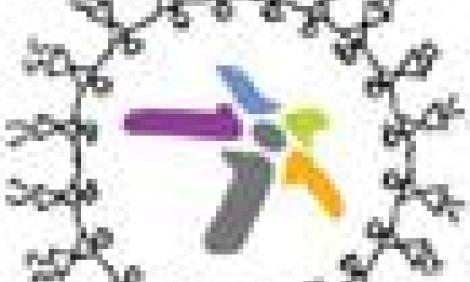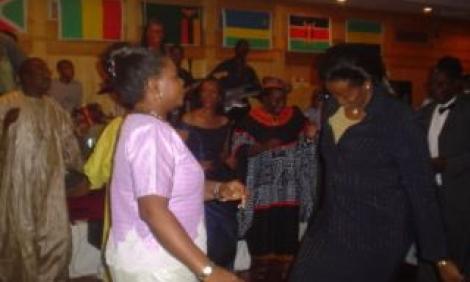In depth
Pourquoi les femmes sont-elles absentes dans la prise de décision dans les TIC au Congo?
La République Congo est située en Afrique centrale et possède une population estimée à 2 854 600 habitants en 2000. Elle est urbaine à 66% et se trouve concentrée dans la partie sud du pays. Les infrastructures de télécommunications sont vétustes, limitées en grande partie aux deux grandes villes du pays (Brazzaville et Pointe-Noire). Malgré l’existence des sociétés de télécommunications privées…
In depth
ICT gender issues past, present and future
As women living in Africa we have many things to confront: the process of African enlargement and our participation in the globalised world, the decline of national states, the dominance of market and consumerism, growing poverty, social and political inequalities or insecurities within Africa and outside in the face of neo-conservatism and dominance of the United States.

In depth
Africa Grassroot Caucus prioritise the WSIS and MDGs as part of development
Africa Grassroots Caucus has prioritised the World Summit on Information Society (WSIS) and the Millennium Development Goals (MDGs) as part of development. This was the outcome of the second Grassroots Caucus Regional Consultation that took place in Lusaka, Zambia on 26-28 July 2005. The participants from Kenya, Uganda, Zimbabwe, Zambia, Congo Brazzaville and the Democratic Republic of Congo…
In depth
HIV/AIDS and mobile technology: sms saving lives in Africa
Two new mobile technology programs in South Africa and Kenya are helping HIV/AIDS sufferers and their carers cope with the challenges.

In depth
OAFLA to use ICTs for social justice
The Organisation of African First Ladies against AIDS (OAFLA) seeks to place women’s health issues on national and regional development agendas. They have embraced ICTs as a tool to advocate for social justice especially in the fight against HIV/AIDS.
Publication
The Africa Women's Regional Shadow Report on Beijing +15
A regional analysis on the status of women 15 years after the adoption of the Beijing Declaration and Platform for Action. The report maps out the progress, gaps and challenges under each of the critical areas of concern in the West, Eastern and Southern sub-regions, with emphasis on the period since the last review in 2004 (Beijing +10). For example, the report argues ,that the ICTs have…
Publication
Radio, Convergence and Development in Africa: Gender as a Cross-Cutting Issue
The purpose of this paper is to argue for the consideration of gender issues in all research on radio, convergence and development in Africa. It is intended to guide the deliberations at our Butare roundtable (September 2009) discussion on a research agenda and to ensure that we put gender considerations front and centre as we design our research plans.
Publication
South Africa: Violence against Women and ICT
Two key debates are examined in the paper by Shereen Essof: censorship versus freedom of expression and privacy versus surveillance. She looks at the practices of VAW in a country with the world's highest reported rate of femicide and where there is little understanding of the strategic use of ICTs to support combating VAW as well as recognizing new avenues for perpetrating violence against women.
Publication
Uganda: Violence against Women and Information Communication Technologies
Aramanzan Madanda, Berna Ngolobe and Goretti Zavuga Amuriat look at how ICTs have been used to help provide spaces for women and sexual minorities. Sexual minorities have a presence on the internet to articulate concerns of members and raise awareness. Women’s mobile phone use is controlled by their husbands, who either give or withold permission to use and dictate when and how. Some women have…




